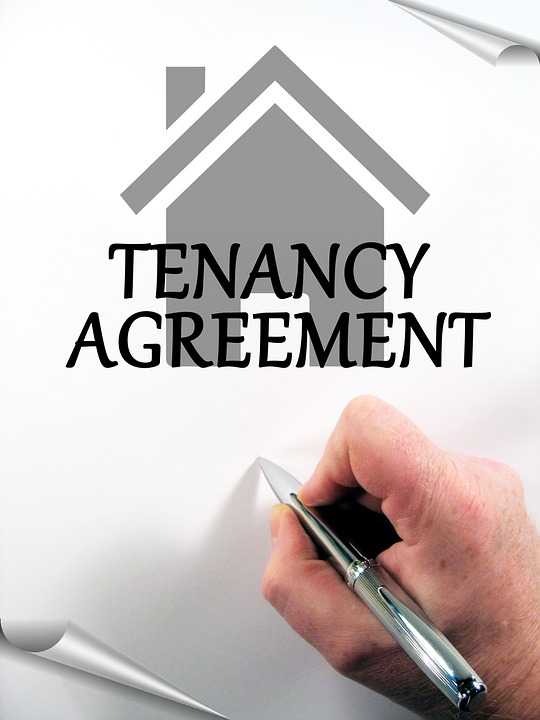Landlords and agents are being increasingly caught out by having to license small shared properties as Houses in Multiple Occupation – only for landlords to be told that they are in breach of their mortgage conditions and are not covered by insurance.
Properties that now rank as HMOs requiring licences could be as small as one-bedroom flats where the tenants use the sitting room as a second room for sleeping.
In one very recent case, the owner of a flat let to three sharers was told they needed an additional HMO licence. However, the mortgage lender would not give consent to this use, putting the landlord in breach of local licensing rules and making them liable to prosecution.
The landlord went to HMO consultant Richard Tacagni, of London Property Licensing, who managed to obtain a temporary exemption from licensing so that a Section 21 notice could be served on the tenants.
Once they have left, the property will then be re-let to a family – meaning that exactly the same property will be compliant without the need for a licence.
Separately, an agent told us that since August he has had 11 landlords who have been told in the last four months to apply for HMO licences for small shared properties and who now intend to sell up rather than obtain a licence. He said they do not want the expense of having to put in HMO standards, and a small property being sold with an HMO licence would be devalued.
He said that as local licensing schemes increasingly bite, the supply of rental property will diminish.
A major difficulty is that new licensing schemes, both additional and selective, vary widely across different authorities.
Since 2006, the law has defined an HMO as any property occupied by three or more people not all related who share facilities. However, until relatively recently, licensing has been restricted to HMOs of three storeys and over with five or more unrelated sharers in most areas.
An additional licensing scheme extends the definition of a licensable HMO and can include properties let to just three occupants in two or more households. Within designated licensing areas, many very small house and flat shares now require an HMO licence.
Furthermore, when an application is made by or on behalf of the landlord, the local authority is legally obliged to find out if the property is mortgaged, and if so, to write and inform the lender.
One agent, in the London borough of Southwark, told EYE: “One of our owners was written to last week. He has a buy-to-let mortgage on his property but has now been told that because he has what is now classified as an HMO, he is in breach of his mortgage conditions and is not covered by insurance.
“We have one outstanding property on our books where the landlord has spent about £160,000 on renovations.
“He will now have to replace all the beautiful new doors with fire doors and comply with all the other requirements for an HMO.
“I am sure we will see further landlords exit the market because of this. It is a nonsense.”
He said that mortgage lenders are unaware of differences between HMOs, and automatically think of HMOs as being large buildings crammed with bedsits – not a small two- or three-bedroomed house or flat – and so refuse permission for a change of use.
Even a one-bedroom flat with three unrelated occupants treating the sitting room as a second bedroom is a licensable HMO in a growing number of areas.
Among the affected properties are those previously let to families but now rented by small groups of sharers.
We spoke to Southwark Council about its licensing scheme, which has been in operation for just under two years, since the start of 2016.
Cllr Barrie Hargrove, cabinet member for communities, leisure and safety, told us: “The definition of an HMO comes under section 254 of the Housing Act. This is not determined by licensing legislation or by the introduction of a licensing scheme.
“Any properties in breach of their mortgage agreements are therefore in breach regardless of our licensing scheme.
“The council has been writing to landlords letting them know about the need to license since January 2016.
“The licence application form includes a section that asks for details of all interested parties, as legally we have to tell them about the application for a licence, and this includes mortgage lenders.
“This is part of the licensing process for all local authorities.”
Tacagni said there is widespread ignorance about the licensing schemes.
He said: “A lot of agents still don’t understand property licensing rules, which creates a huge compliance risk.
“Many agents also don’t realise that they share that compliance risk with the landlord. Both can face prosecution or a civil penalty if they fail to apply for a licence.”
He said agents should check what rules apply locally: “With the expansion of property licensing schemes across the country, this issue is affecting more and more agents and landlords.”
In advice on his website, Tacagni writes: “As part of the application process there is a requirement for the applicant to let certain people know in writing that an application is being submitted.
“There is a requirement for the applicant to notify the mortgage lender, freeholder, leaseholders, licence holder, managing agent and anyone else who has agreed to be bound by a condition in the licence.
“So the mortgage lender will find out about the licence application, and failure to disclose the lenders details would be a criminal offence.
“But there is more. It is a two-stage notification process. So in addition to the individual telling all relevant people about the application, the local authority will also do the same.
“By law, the local authority must send a copy of the proposed licence to all relevant people and allow them 14 days to make any representations before the licence is approved or refused.”
Tacagni said that this puts landords in a tricky position. If they apply for a licence, they risk action from their lenders; if they don’t apply, they risk prosecution by the local authority.
He said: “The only option may be to remortgage the property and potentially face a hefty redemption penalty.”
He warned that landlords who breach their mortgage terms might also undermine any future borrowing arrangements, and risk the lender calling in the loan at short notice.
He said another issue to consider is whether the property stacks up financially if let to a single household rather than to sharers.
Yet another possible complication is that in some areas there are HMO Article 4 Directions. This means that as well as having to get a licence for what could be a small shared property, owners may also need to apply for planning permission.
Tacagni’s consultancy service covers London, but contains useful information for agents and landlords anywhere where local authorities have introduced their own selective or additional licensing schemes.
Source: Property Industry Eye







